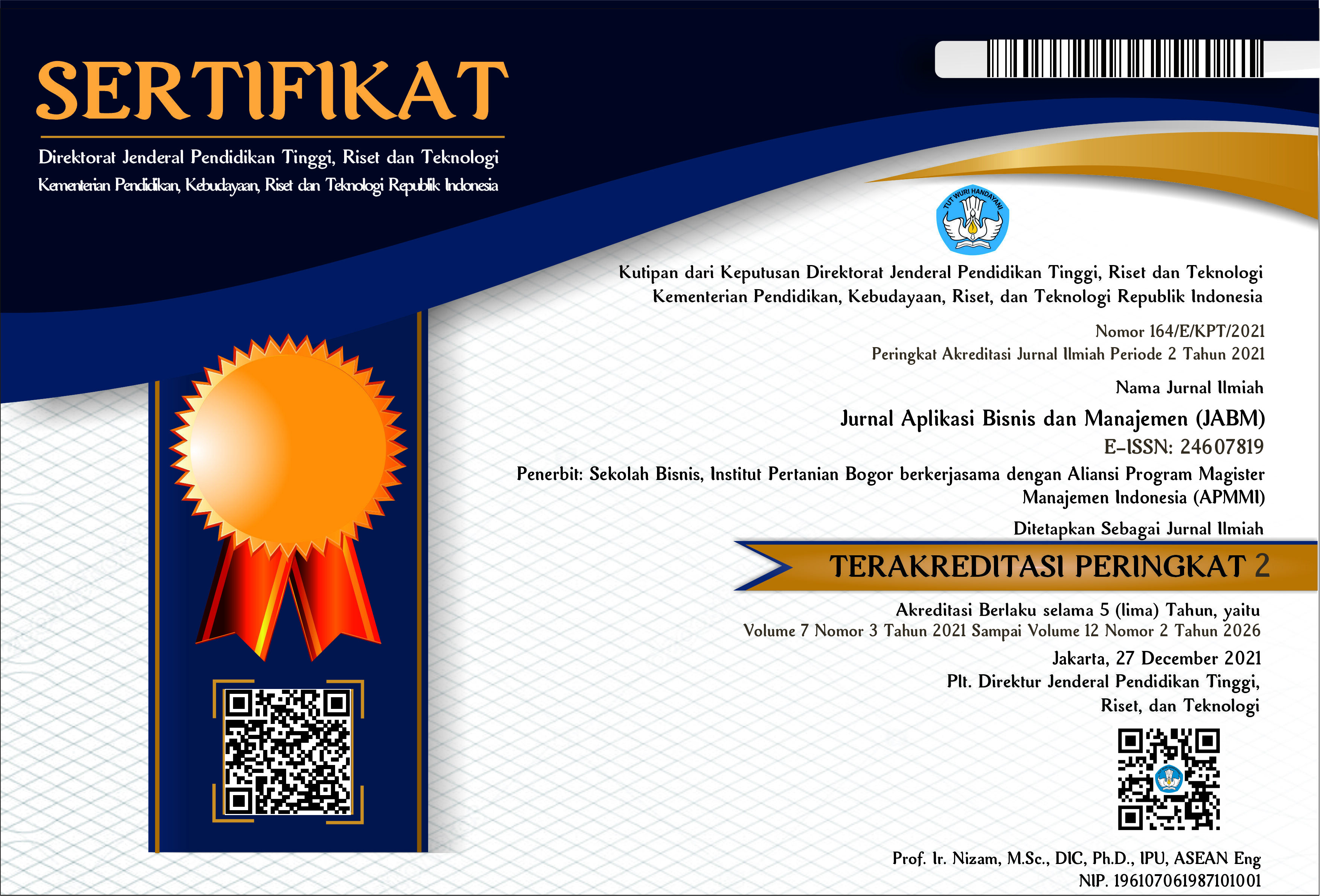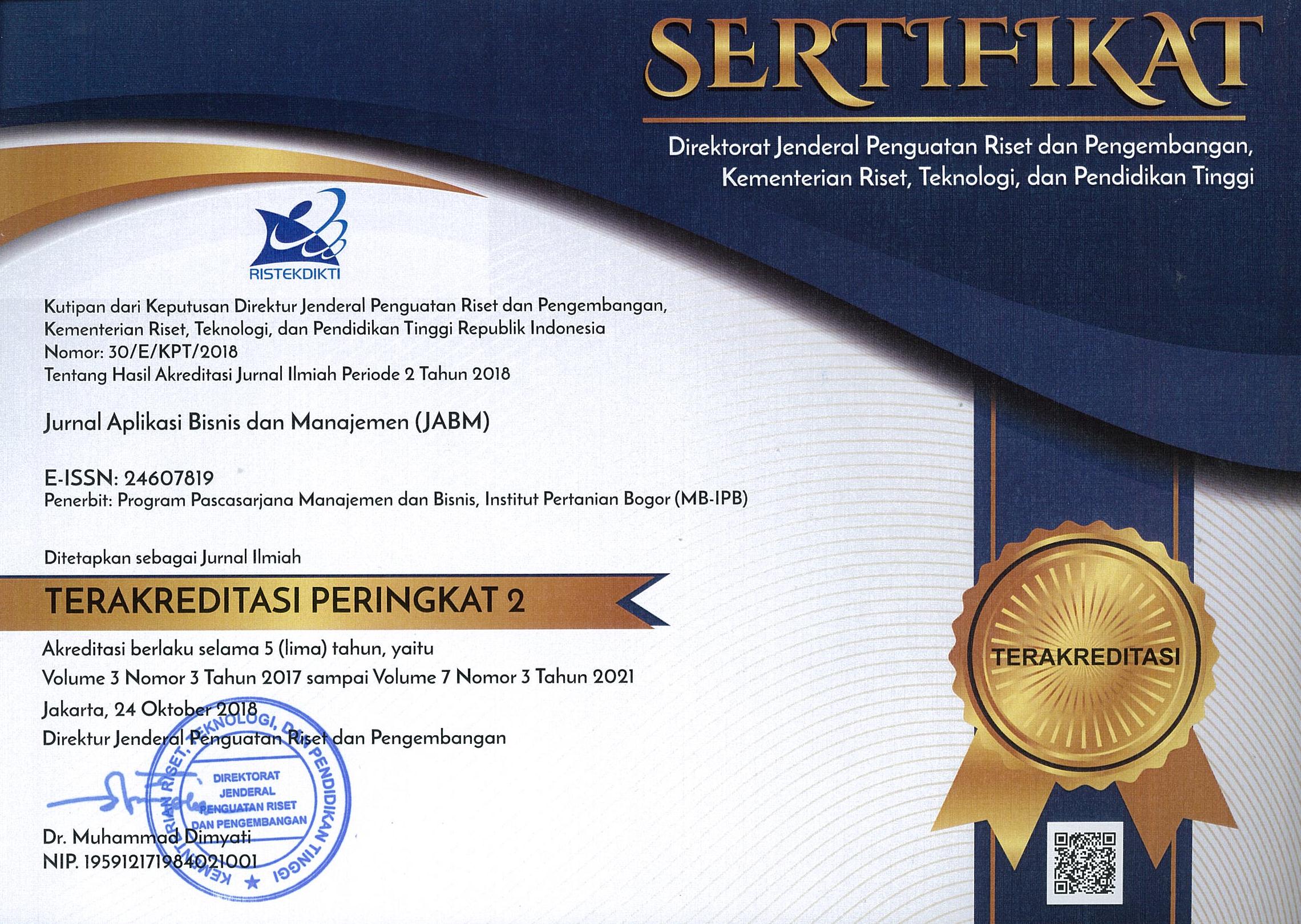The Impact of Human Resource Management Practices on Employee Satisfaction: Hospitaly Contex
Abstract
Background: Human resource management (HRM) practices are essential tools employed by hotel management to achieve organizational objectives.
Purpose: The aim of this study was to investigate how HRM practices impact job satisfaction and employee retention in the hotel industry in Indonesia.
Design/methodology/approach: This study used a completely random sample of 361 hotel employees from Indonesia. This study employed regression modeling on online survey collected data.
Findings/Results: Research has demonstrated that human resource management (HRM) practices, including job security, empowerment, training, and quality of work life, have a substantial influence on employee retention rates. Furthermore, job satisfaction emerges as another critical determinant of the duration employees choose to stay with their present employer.
Conclusions: Furthermore, the results of the regression analysis indicate that there is a direct link between HRM practices and employee retention. However, this connection is significantly stronger when job satisfaction levels are initially increased. As a result, effective HRM practices have been shown to enhance employee satisfaction, leading to greater loyalty and commitment to the company.
Originality/value (state of the art): This study aims to enhance our understanding of the relationships between human resource management (HRM) practices, employee satisfaction, and employee retention. While previous research on the connection between HRM practices and employee satisfaction is limited, this study is noteworthy for exploring the effects of four dimensions of HRM practices on employee satisfaction, and how this in turn impacts employee retention.
Keywords: employee satisfaction, hospitality organizations, HRM practices, regression analysis, retention







